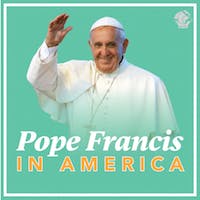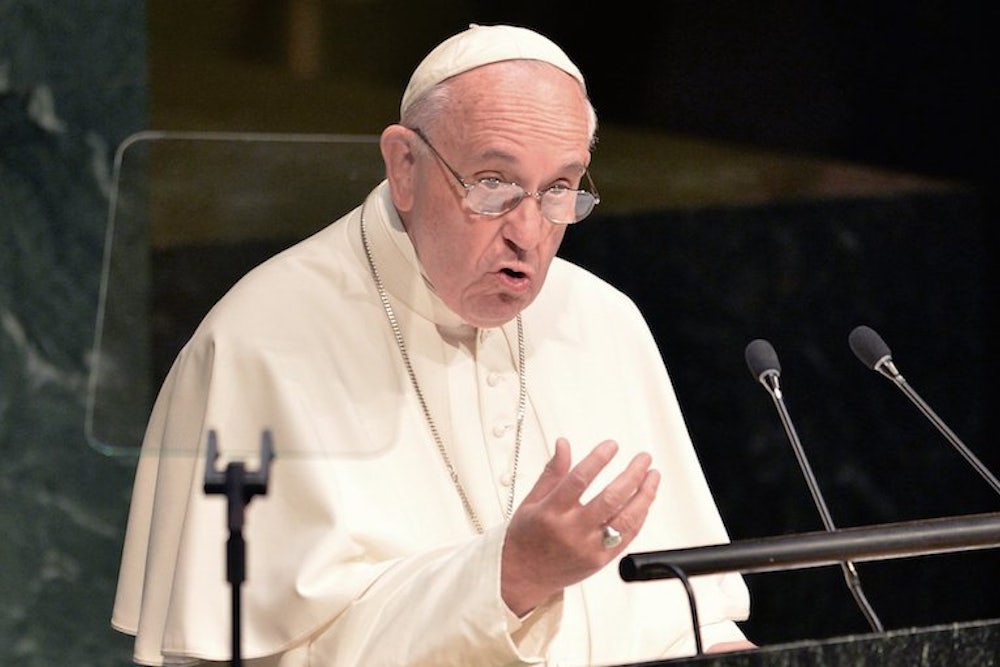
In his address to the United Nations Friday morning, Pope Francis's made the strongest calls to address climate change of his U.S. visit so far, making the case for a "right of the environment" and calling for an end to "the culture of waste."
First, it must be stated that a true “right of the environment” does exist, for two reasons. First, because we human beings are part of the environment. We live in communion with it, since the environment itself entails ethical limits which human activity must acknowledge and respect. Man, for all his remarkable gifts, which “are signs of a uniqueness which transcends the spheres of physics and biology," is at the same time a part of these spheres. ... Any harm done to the environment, therefore, is harm done to humanity. Second, because every creature, particularly a living creature, has an intrinsic value, in its existence, its life, its beauty and its interdependence with other creatures. ... In all religions, the environment is a fundamental good.
The misuse and destruction of the environment are also accompanied by a relentless process of exclusion. ... Economic and social exclusion is a complete denial of human fraternity and a grave offense against human rights and the environment. The poorest are those who suffer most from such offenses. ... They are part of today’s widespread and quietly growing “culture of waste."
As the New Republic's Rebecca Leber has noted, Francis shies away from the term "climate change," a trend he continued at the U.N. But he made his stance clear by placing the issue at the top of his speech, applying direct pressure on the United Nations ahead of the Paris Conference on Climate Change in December. The pontiff also focused closely on environmental justice, more explicitly linking discrimination and social and economic exclusion to environmental degradation. In his speech to Congress, Pope Francis only said environmental issues affect everyone. “These sectors are closely interconnected and made increasingly fragile by dominant political and economic relationships," he said. That is why their rights must be forcefully affirmed, by working to protect the environment and by putting an end to exclusion."
The speech was also progressive in its discussion of environmental health and the impacts the environment can have on human well-being, especially for those facing increased environmental stressors due to the economic and social factors Pope Francis mentioned. “Man, for all his remarkable gifts … is at the same time a part of these spheres. He possesses a body shaped by physical, chemical and biological elements, and can only survive and develop if the ecological environment is favourable.”
While Pope Francis has been criticized for both not going far enough on climate change and being “political” about the issue, his position in front of the U.N. was strong, focusing on the poor and the disenfranchised he has continually said should be the true focus. “The poorest are those who suffer most from such offenses, for three serious reasons: they are cast off by society, forced to live off what is discarded, and suffer unjustly from the abuse of the environment. They are part of today’s widespread and quietly growing ‘culture of waste’.”
With the Paris climate talks quickly approaching, Pope Francis's recognition of the interconnectedness of war, social and economic issues, and the environment show a developing consciousness about the impacts of climate change—a truly global challenge the pontiff and the United Nations are uniquely positioned to help solve.
